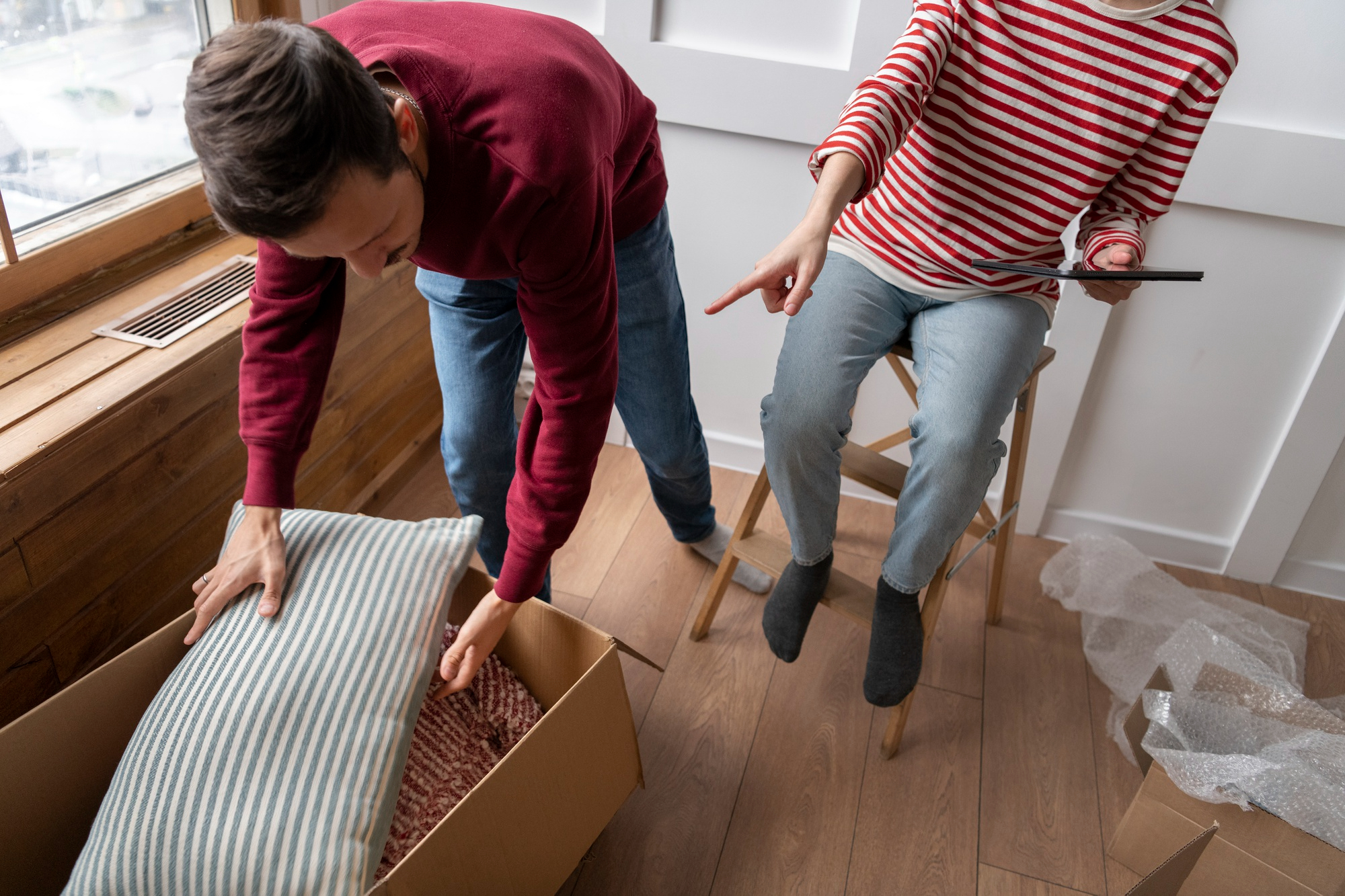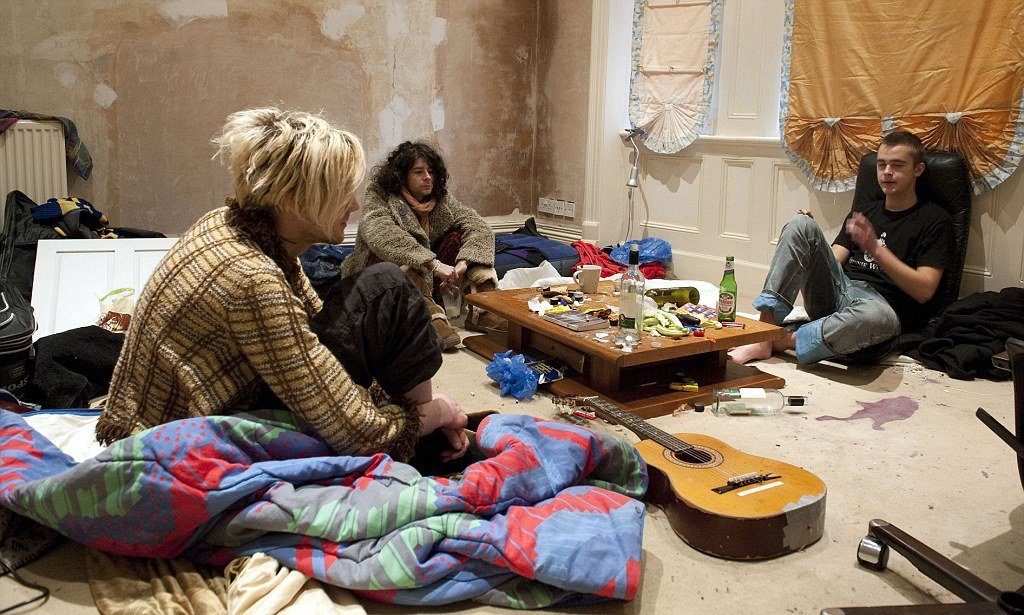Is Moving in with Squatters the New ‘Outsquatting’ Trend?

- Info and Tips
Some homeowners are now moving back into their own homes while squatters are still living there. This approach, known as “outsquatting,” is becoming a last-resort tactic for people stuck in long legal battles or facing delays in evicting illegal occupants. Instead of waiting months for court decisions, they move in themselves to pressure squatters to leave.
Outsquatting is not a perfect solution. It’s risky, uncomfortable, and can quickly escalate tensions. But for some property owners, it feels like the only way to reclaim their home when the legal system offers little immediate help.
In this blog, we’ll talk about why outsquatting is on the rise, how it works, and the real dangers involved.
What Is ‘Outsquatting’ and Why People Are Talking About It

Image Source: Bella Virtual Staging
“Outsquatting” is a term that’s been floating around online and in the media, usually tied to stories about people moving into homes alongside squatters or taking over empty properties.
The idea is that by joining others who are already occupying a place illegally, someone might avoid rent and still live there. It’s been described by some as a kind of housing loophole or form of protest, especially in cities where rent is high and housing is hard to find.
But the truth is, this so-called “outsquatting trend” is more media buzz than reality. While a few stories might catch attention, it’s not something that’s legally recognized, safe, or widely practiced.
Most people talking about it are reacting to rare incidents or sensational headlines. In real life, trying to move in with squatters is risky, illegal in many places, and can lead to serious consequences, not free housing.
The Truth About Squatting Laws
Squatting might sound like a legal grey area, but in most places, it’s clearly against the law—especially when it comes to residential properties. In countries like the UK and in many U.S. states, squatting in someone’s home without permission is considered a criminal offense.
That means someone caught squatting can be arrested, fined, or even jailed. It’s not just a matter of being asked to leave — it can lead to a criminal record.
The law treats squatting very differently from situations involving tenants. If someone breaks into a property or refuses to leave after entering without permission, it’s a serious legal issue.
While abandoned commercial buildings might get a little less attention, squatting in a private home is almost always dealt with quickly and harshly by authorities.
So despite what some might think, squatting isn’t a legal shortcut to free housing — it’s a high-risk move with real legal consequences.
Squatters vs. Tenants: Know the Difference
It’s important to understand the difference between a squatter and a tenant because the law treats them very differently. A tenant is someone who has permission to live in a property—usually through a lease or rental agreement.
Even if they stop paying rent or stay past their lease, they still have legal rights as a tenant. In those cases, landlords must go through a formal eviction process to remove them.
A squatter, on the other hand, is someone who moves into a property without any permission from the owner. They didn’t sign a lease, weren’t invited, and have no legal agreement in place.
Because of this, squatting is usually illegal, and property owners can often take quicker legal action to remove them, depending on local laws.
Mixing up the two can be confusing, especially in eviction cases. But knowing the difference is key when it comes to property rights and legal action.
Changing Laws and Public Response
With squatting stories gaining more attention in the news and online, some cities and states have started updating their laws to deal with the issue more directly.
In many places, property owners have found it difficult and time-consuming to remove squatters, even from homes that are being occupied without permission. This has led to public pressure and lawmakers stepping in.
Recent legal changes aim to make it easier and faster for homeowners to take back their property. Some areas have shortened the legal process or given police more authority to remove illegal occupants without going through lengthy court battles.
Organizations like the Pacific Legal Foundation have also been involved in pushing for stronger protections for property owners.
The growing frustration of the public has played a big role. As more people speak out, especially on social media, laws are shifting to reflect the need for clearer rules and quicker enforcement when dealing with squatters.
Conclusion
Moving in with squatters to reclaim your own home might seem like a bold move, but it’s far from a simple fix. Outsquatting is a sign of how broken the system can be for property owners dealing with illegal occupants. While some homeowners have used this tactic to force squatters out, it comes with serious risks — legal trouble, personal safety concerns, and the potential for property damage.
If you’re facing a squatter situation, outsquatting should never be your first choice. Legal eviction, cash-for-keys agreements, or professional mediation are safer and more reliable paths. However, if the system leaves you no immediate options and you choose to outsquat, be fully aware of the consequences, document every step, and seek legal advice to protect yourself.
FAQs
What is the phenomenon of squatters?
Squatting happens when people, often from low-income or homeless backgrounds, move into abandoned or unused buildings or land without permission. It usually takes place in big cities where housing is expensive and in short supply. According to a 2003 report from the United Nations, about one billion people were living in squatter settlements or slums around the world at that time.
Is the term “squatter” considered offensive?
The word “squatter” has a negative history. It originally came from English and was used to describe someone living on land without permission—often in a disrespectful or insulting way. While it’s still used today to describe people occupying property illegally, the term can carry a harsh or judgmental tone, depending on how it’s used.
Why do squatter settlements develop?
Squatter settlements often grow in cities where a lot of people move in from rural areas looking for jobs and better living conditions. When the city grows too fast and there’s not enough affordable housing, some people have no choice but to settle wherever they can, even if the land isn’t legally theirs. This is especially common in developing countries.
What is squatting in females?
In this context, “squatting” refers to an exercise, not housing. For women, a squat is a simple workout that strengthens the legs and glutes. To do it, you stand with your feet a bit wider than shoulder-width, bend your knees and hips like you’re sitting in a chair, and then stand back up. It’s a popular move in fitness routines for building lower-body strength.